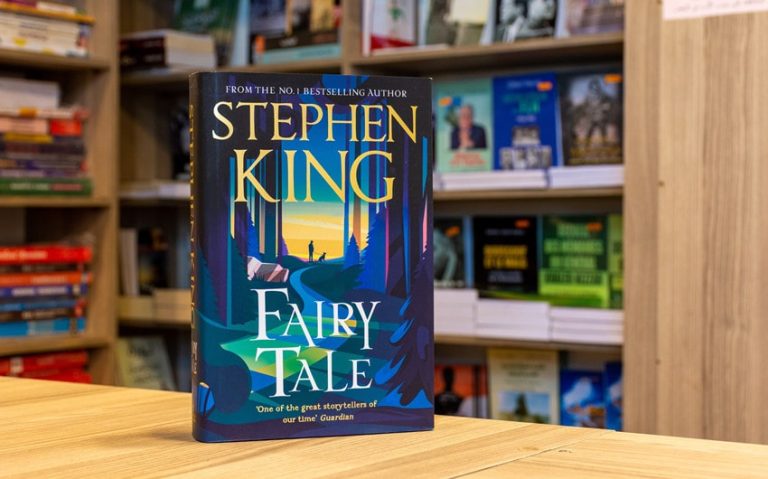Is Haunting Adeline Worth Reading? A Critical Book Review
Haunting Adeline is one of those books you’ve probably heard mixed things about. Some people rave about its intensity, while others are left feeling unsettled. Personally, when I picked it up, I wasn’t prepared for just how far the story dives into some really dark and problematic themes.
It’s supposed to be a romance, but with all the obsession and manipulation going on, I couldn’t help but feel uneasy. If you’re like me and enjoy a good love story with boundaries, this one might leave you feeling conflicted. Let’s dive into why this book might not be for everyone.
Plot Overview: A Tale of Obsession and Control

Image source: Pinterest
The plot of Haunting Adeline starts out intriguing, but it quickly takes a dark turn. At its core, the story is about Adeline, a woman who becomes the target of a stalker. What begins as a suspenseful mystery morphs into a tale of obsession, manipulation, and control. The stalker, Zade, is portrayed as a man deeply infatuated with Adeline, to the point where he invades every part of her life.
While this kind of plot might sound thrilling to some, I found myself feeling increasingly uncomfortable. It’s one thing to build tension in a romance, but here, the line between love and unhealthy obsession gets blurred far too easily.
The way control and manipulation are woven into the story makes it hard to root for any connection between the two characters. Instead of feeling like an intense romance, it felt more like a warning about the dangers of glorifying obsessive behavior.
Problematic Themes: Normalizing Toxic Behavior
As someone who enjoys diving into complex relationships in books, I was hoping Haunting Adeline would explore darker themes with nuance. Instead, I found myself disturbed by how certain behaviors are portrayed, especially the way toxic behavior is normalized.
Zade’s actions, which include stalking, breaking into Adeline’s home, and exerting control over her life, are presented in a way that almost romanticizes them.
For me, this is where the book crossed a line. I understand that dark romance can push boundaries, but Haunting Adeline didn’t give me the sense that the characters were truly reckoning with their actions.
Instead, the toxic dynamics felt glossed over, as if they were part of an intense love story, when in reality, they mirror dangerous behaviors we should never romanticize. It left me feeling uneasy and questioning how this portrayal impacts readers’ perception of real-world relationships.
Characterization: Troubling Depictions of the Main Characters
One of the biggest issues I had with Haunting Adeline was the way the characters were portrayed, especially the two leads, Adeline and Zade. Adeline, while initially intriguing as a strong and independent woman, quickly becomes entangled in a toxic dynamic that seems to strip her of any real depth.
As a reader, I wanted to connect with her, understand her motives, and see her make choices that felt true to her character. Instead, I often found myself frustrated by her decisions, especially as she navigated her disturbing relationship with Zade.
Speaking of Zade, his character is even more troubling. While dark romance often involves morally complex characters, Zade’s behavior is never really challenged within the story.
He’s presented as the classic “bad boy,” but his actions—stalking, manipulation, and control—go far beyond what I could ever root for in a romantic lead. The lack of accountability for his behavior made it hard for me to see him as anything other than a walking red flag.
Ultimately, the character dynamics in Haunting Adeline left me feeling uncomfortable and disconnected. I wanted more depth and internal conflict, especially considering how toxic their relationship was. Instead, I was left with characters that didn’t feel fully realized or reflective of the consequences of their actions, which made it hard to engage with their story on a meaningful level.
Writing Style: Too Much Drama, Not Enough Substance
When it comes to the writing style of Haunting Adeline, I’ll admit I was expecting more. At first, the suspenseful tone pulled me in, but as the story progressed, the writing leaned heavily into over-the-top drama.
It seemed like every scene was trying to one-up the last, and while that might work for some readers, I found it exhausting after a while. The focus on creating shock value and maintaining a dark, edgy atmosphere ended up overshadowing the potential for deeper emotional or character-driven moments.
For me, the writing missed the mark by not fully exploring the emotional weight behind the characters’ actions. Instead of delving into the psychological and emotional consequences of the toxic dynamics between Adeline and Zade, the narrative often felt like it was skimming the surface.
There were moments where I hoped the story would slow down and give us insight into what the characters were truly feeling, but those moments were few and far between.
As a reader, I wanted more substance to balance out the drama. I wanted the writing to challenge the characters’ decisions and make me feel conflicted, but instead, it felt like the story was more interested in being provocative than reflective.
By the end, I was left wishing the writing had taken more time to dig deeper into the emotional complexities of such a dark romance, rather than just piling on the shock factor.
Reader Impact: Why This Story is Problematic
As I finished Haunting Adeline, I couldn’t shake the discomfort I felt about how this story might influence readers, especially those who are drawn to dark romance but might not fully grasp the toxic behaviors at play.
While I understand the appeal of exploring complex relationships, this book goes beyond that, presenting obsessive, controlling actions as part of a romantic dynamic without offering any real critique.
The problem arises when toxic behaviors like stalking and manipulation are normalized or even glorified. For younger or more impressionable readers, this could blur the lines between fiction and reality, leading to a dangerous misunderstanding of what love and passion should look like.
Personally, I think Haunting Adeline misses an opportunity to explore the consequences of these actions. Instead, it risks romanticizing unhealthy dynamics, which left me uneasy.
Stories have the power to shape our perceptions of relationships, and this book treads into problematic territory by not challenging the harmful behaviors it portrays, leaving readers with a skewed view of love and obsession.







